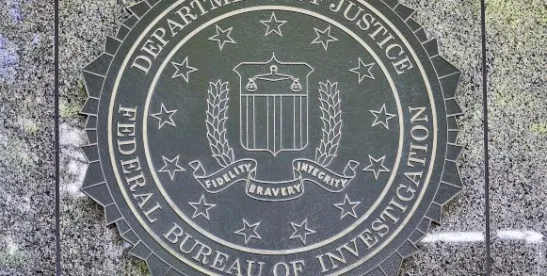Go-To Guide:
- Clarifying a May 2025 announcement, Matthew R. Galeotti, head of the U.S. Department of Justice’s Criminal Division, recently affirmed that white collar enforcement remains a DOJ priority, with a focus on individual misconduct and quicker resolutions.
- Absent “truly aggravating” circumstances, companies that self-report misconduct “will receive a declination,” not just a presumption of one. Conversely, companies that delay producing documents or witnesses, or otherwise impede investigations, may face harsher outcomes.
Background: The Administration’s White Collar and Corporate Enforcement Approach
On May 12, 2025, DOJ Criminal Division Head Matthew R. Galeotti issued a “multi-faceted” white collar enforcement plan (Memorandum) in which he noted that unchecked and overbroad white-collar enforcement burdens U.S. corporate interests. Galeotti cautioned that prosecutors must avoid overreach that “punishes risk-taking and hinders innovation,” and called for an appropriate balance between prosecuting criminal wrongdoing and minimizing burdens on American enterprise. The Memorandum identified 10 high-impact areas for the Criminal Division’s focus.[1] In its wake, some observers questioned whether it signaled a de-prioritization of white collar enforcement.
Summary of Galeotti’s Remarks
On June 10, 2025, Galeotti delivered remarks at the American Conference Institute, elaborating on the Memorandum and addressing the “extremely broad swath of white-collar and corporate misconduct not governed by [the FCPA].”[2]
Galeotti clarified that, “to the extent anyone may have misread” his earlier Memorandum, “[u]nder my leadership, the Criminal Division has not and will not close meritorious investigations or dismiss meritorious cases. Indeed, consistent with the principles set forth in my memorandum, we will vigorously pursue these investigations and open new ones.”
He cautioned those under DOJ investigation against seeking “premature relief,” mischaracterizing prosecutorial conduct, or failing to be an “honest broker,” describing those acts as counterproductive.
Galeotti urged business and compliance leaders to “do the right thing” by self-reporting misconduct, cooperating with the DOJ, and remediating corporate wrongdoing. He warned that companies choosing not to self-report will be held accountable, and that the DOJ will “root out” and swiftly bring charges against those the DOJ believed to have committed crimes in areas highlighted in the Memorandum.
Three Areas of White Collar Policy Refinement
Galeotti highlighted three practical changes the Criminal Division will implement in its white collar enforcement efforts:
- Enhanced Incentives for Self-Reporting. Companies that voluntarily self-report misconduct, cooperate, and remediate will receive a declination—not just a “presumption” of declination. While Galeotti recognized that “truly aggravating” circumstances may still preclude a declination, he characterized such instances as rare and he sought to dispel any perception that self-reporting might turn into “a game of ‘gotcha.’”
- Narrowed Use of Monitors. Galeotti indicated the Criminal Division’s review of the use of corporate monitors in existing resolutions is near its end. While the Civil Division has decided to allow some monitorships to continue, others have been terminated where companies have achieved sufficient compliance through self-reporting and remediation. Monitorships, he emphasized, are intended as a temporary bridge to full compliance.
- Emphasis on Efficiency. The Criminal Division will aim for greater efficiency in investigating corporate crime. Galeotti stated that “[l]engthy and sprawling investigations” do not serve the department, prosecutors, or the public. He urged counsel and business leaders to produce documents promptly identify key evidence, make witnesses available, and assist in navigating complex global legal regimes, warning that failure to do so could negatively impact a company’s outcome.
Takeaways
Galeotti’s message was clear: “This is the time for companies to self-report. It is the time to do the work, come in early, cooperate, and remediate. The Criminal Division’s policies give clear benefits to those who do. And for those who don’t, we will move swiftly and aggressively to bring cases against individuals and companies. We will use all our tools and seek strong sentences. We will hold culpable companies and individuals to account for misconduct.”
In short, the Criminal Division is incentivizing cooperation while making it clear it will aggressively investigate and potentially pursue charges against those culpable individuals and companies if they do not work with prosecutors. The decision to self-report criminal conduct to DOJ remains complex, however—especially if the investigation involves offices other than the Criminal Division. Companies should carefully consider the potential benefits and risk with counsel.
[1] 1) Waste, fraud, and abuse that harm the public, including procurement fraud and health care fraud; (2) Trade and customs fraud, including tariff evasion; (3) Fraud perpetrated through variable interest entities, including “ramp and dumps,” securities fraud, and other market manipulation schemes; (4) Investment fraud victimizing U.S. investors, individuals, and markets; (5) National security threats; (6) Material support by corporations to foreign terrorist organizations, including recently designated cartels and transnational criminal organizations; (7) Complex money laundering, including Chinese money laundering organizations; (8) Violations of the Controlled Substances Act and the Federal Food, Drug, and Cosmetic Act; (9) Bribery and associated money laundering that impacts U.S. national interests, undermines U.S. national security, harms the competitiveness of U.S. businesses, and enriches foreign corrupt officials; and (10) Crimes (1) involving digital assets that victimize investors and consumers; (2) that use digital assets in furtherance of other criminal conduct; and (3) involving willful violations that facilitate significant criminal activity.
[2] See “FCPA Enforcement Resumes: DOJ Outlines New Investigative Priorities,” GT Alert, June 13, 2025.




 />i
/>i

